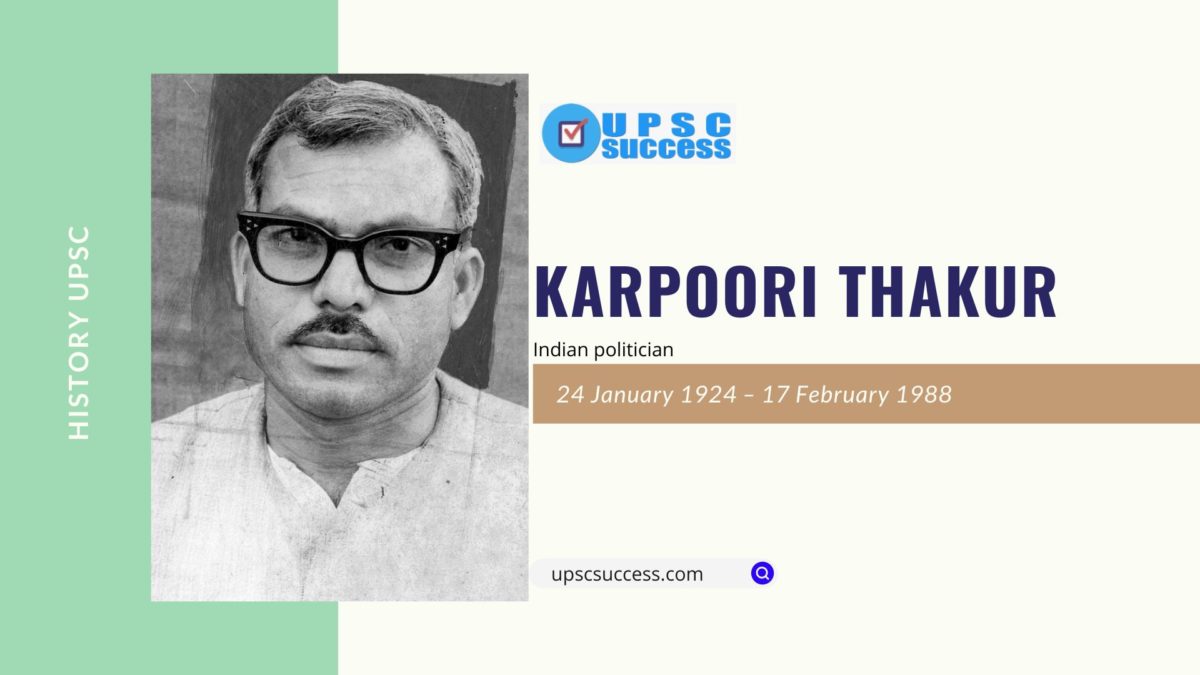Karpoori Thakur was posthumously awarded the Bharat Ratna, India’s highest civilian award, in 2024. This recognition came on the eve of his 100th birth anniversary, solidifying his legacy as a champion of social justice and advocate for the underprivileged.
Thakur was a charismatic leader who connected deeply with the masses through his simple lifestyle and powerful speeches. He was known for his honesty and integrity, even refusing luxurious accommodation and perks as Chief Minister. His policies and actions, though sometimes controversial, left a lasting impact on Bihar’s political and social landscape.
About Karpoori Thakur:
- Born: January 24, 1924, in Pusa, Bihar
- Died: February 17, 1988
- Occupation: Politician, socialist leader, Chief Minister of Bihar (1975-79)
- Known for:
- Advocating for the upliftment of backward classes and marginalized communities
- Implementing populist policies like land reforms and minimum wages
- Championing the cause of the poor and downtrodden, earning him the moniker “Jan Nayak” (People’s Hero)
- Leading mass movements and protests against social and economic injustices
Political Career:
- Thakur began his political career in the 1950s and quickly rose through the ranks of the socialist Samyukta Socialist Party (SSP).
- He was elected to the Bihar Legislative Assembly in 1961 and served as Leader of the Opposition for several years.
- In 1975, he became the Chief Minister of Bihar, leading a coalition government.
- His tenure was marked by progressive policies aimed at alleviating poverty and inequality, such as land redistribution, free education for the underprivileged, and increased minimum wages.
- His commitment to social justice earned him immense popularity among the rural and marginalized communities.
- However, his government faced challenges, including political instability and financial constraints.
Legacy:
- Karpoori Thakur remains a revered figure in Bihar and beyond, remembered for his unwavering dedication to social justice and his fight for the rights of the downtrodden.
- His life and work continue to inspire activists and politicians working towards a more equitable society.
- The conferment of the Bharat Ratna in 2024 served as a fitting tribute to his exceptional contributions to the nation.

